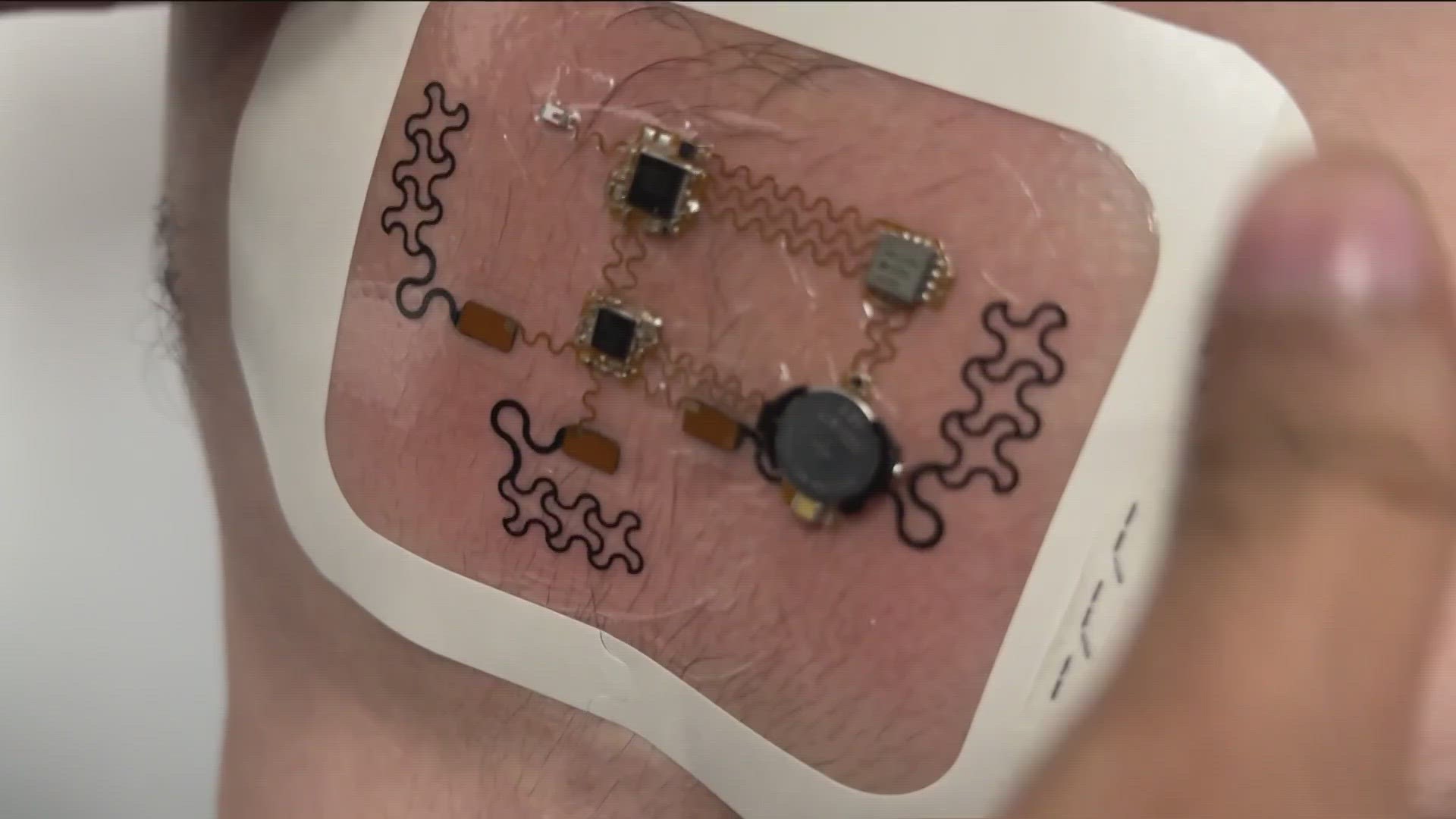AUSTIN, Texas — A new flexible, wearable medical device could provide a major shift in the fight against heart disease – which is the leading cause of death in the U.S.
The device was created by a team led by researchers at the University of Texas at Austin. The team has been developing the product since 2017.
"We not only monitor the heart but also monitor the brain, the muscle, the stress, like from the palms sweating and so on," said Nanshu Lu, a Frank and Kay Reese professor of engineering.
The ultrathin, lightweight electronic tattoo attaches to the chest for mobile heart monitoring. The e-tattoo weighs only 2.5 grams and runs on a rechargeable battery the size of a penny that a life of more than 40 hours.
"We have wireless data and the power transmission is through near field communication. Now we have a wireless Bluetooth transmission all the time, nonstop for more than 24 hours, which is really exciting," Lu said.
The device includes two sensors that provide a clear picture of heart health, giving clinicians a better chance to catch red flags for heart disease early. The clear device is less intrusive than other monitoring systems and said to be more comfortable for patients.
Once on the heart, the device provides two key measurements. The electrocardiogram (ECG) is the electrical signal from the heart and the seismocardiogram (SCG) is the acoustic signal from the heart that comes from the heart valves.
ECG can be measured by mobile devices such as an Apple Watch and the SCG can be monitored through a stethoscope. But there is no mobile solution that approximates a stethoscope or takes both measurements.
According to Lu, cardiologists at the Cleveland Clinic will now test how this e-tattoo compares to hospital patient monitors.
"We are shipping our wireless chest tattoos to Cleveland Clinic, and the cardiologist is a surgeon and he is going to recruit his own patients to participate in this study and really test how our tattoo compares with hospital patient monitors and whether we can also acquire data while the patients are released to home," Lu said.
With mobile monitoring at home, doctors are able to do make an early diagnosis and begin treatment because 80% of heart disease can be prevented.
Lu said the team is very excited to see their tattoo in action in the future.

